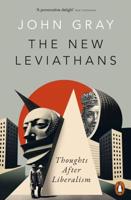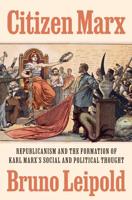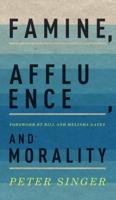Publisher's Synopsis
Thoreau asserts that because governments are typically more harmful than helpful, they therefore cannot be justified. Democracy is no cure for this, as majorities simply by virtue of being majorities do not also gain the virtues of wisdom and justice. The judgment of an individual's conscience is not necessarily inferior to the decisions of a political body or majority, and so "[i]t is not desirable to cultivate a respect for the law, so much as for the right. The only obligation which I have a right to assume is to do at any time what I think right.... Law never made men a whit more just; and, by means of their respect for it, even the well-disposed are daily made the agents of injustice."[6] He adds, "I cannot for an instant recognize as my government [that] which is the slave's government also."[7]The government, according to Thoreau, is not just a little corrupt or unjust in the course of doing its otherwise-important work, but in fact the government is primarily an agent of corruption and injustice. Because of this, it is "not too soon for honest men to rebel and revolutionize".[8]Political philosophers have counseled caution about revolution because the upheaval of revolution typically causes a lot of expense and suffering. Thoreau contends that such a cost/benefit analysis is inappropriate when the government is actively facilitating an injustice as extreme as slavery. Such a fundamental immorality justifies any difficulty or expense to bring it to an end. "This people must cease to hold slaves, and to make war on Mexico, though it cost them their existence as a people."[9]Thoreau tells his audience that they cannot blame this problem solely on pro-slavery Southern politicians, but must put the blame on those in, for instance, Massachusetts, "who are more interested in commerce and agriculture than they are in humanity, and are not prepared to do justice to the slave and to Mexico, cost what it may... There are thousands who are in opinion opposed to slavery and to the war, who yet in effect do nothing to put an end to them."[10] (See also: Thoreau's Slavery in Massachusetts which also advances this argument.)He exhorts people not to just wait passively for an opportunity to vote for justice, because voting for justice is as ineffective as wishing for justice; what you need to do is to actually be just. This is not to say that you have an obligation to devote your life to fighting for justice, but you do have an obligation not to commit injustice and not to give injustice your practical support.Paying taxes is one way in which otherwise well-meaning people collaborate in injustice. People who proclaim that the war in Mexico is wrong and that it is wrong to enforce slavery contradict themselves if they fund both things by paying taxes. Thoreau points out that the same people who applaud soldiers for refusing to fight an unjust war are not themselves willing to refuse to fund the government that started the war.In a constitutional republic like the United States, people often think that the proper response to an unjust law is to try to use the political process to change the law, but to obey and respect the law until it is changed. But if the law is itself clearly unjust, and the lawmaking process is not designed to quickly obliterate such unjust laws, then Thoreau says the law deserves no respect and it should be broken. In the case of the United States, the Constitution itself enshrines the institution of slavery, and therefore falls under this condemnation. Abolitionists, in Thoreau's opinion, should completely withdraw their support of the government and stop paying taxes, even if this means courting imprisonment, or even violence.










